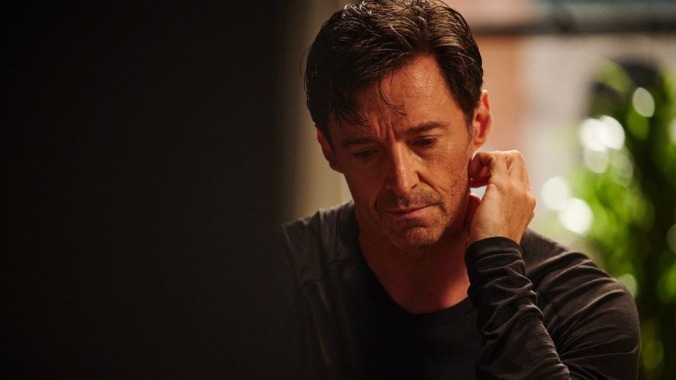The Son never rises, despite stirring performances from Hugh Jackman and Laura Dern
Director Florian Zeller's follow-up to his Oscar winner The Father offers simplistic solutions to complex mental health issues

The Son is the latest addition to a recent crop of movies to present grief and trauma in ways that imply that Hollywood is the first to ever discover both. Writer-director Florian Zeller’s overwrought and underwhelming follow-up to his Oscar-winning The Father is a bleak, TV movie-level affair that’s convinced it’s a legit awards contender. The filmmaker doubles down on his lack of awareness for most of The Son’s dour, surface-level exploration of depression. Despite the shallow handling of truly important and nuanced subject matter, Hugh Jackman, Laura Dern and a scene-stealing Vanessa Kirby go deep with their performances in ways that almost make The Son’s manipulative and predictable story worth sitting through—almost.
Movies often depict mental health struggles in the most stereotypical or exaggerated ways; whole generations of people have based their understanding of them on the often inaccurate—and, at times, offensive—representations that they’ve seen in movies. The Son’s reach falls frustratingly short of its grasp in terms of adding any nuance to those depictions, here embodied in the story of teenager Nicholas Miller (Zen McGrath) and his parents, Kate (Dern) and Peter (Jackman).
Several years after Kate and Peter’s divorce, Nick wants to stop living with his mom and move in with his dad, who recently had a baby with his new partner, Beth (Vanessa Kirby). Nick’s decision is seemingly sparked by depression, but the movie fails to articulate in any substantive way exactly what that looks or feels like other than Nick describing the oppressive weight of life, which inspires him to skip school and roam the streets of New York trying to, well, I’d say “make sense of it all,” but that’s not what the movie chooses to do. Or perhaps knows how to do.
Zeller makes emotionally dishonest and cliched choices in dramatizing Nick’s mental health and his family’s response to it. He elicits sympathy—to an extent —by dramatizing both Nick’s struggle to accept that his sad thoughts and feelings aren’t representative of reality, and his father’s inability to prioritize his son’s discomfort over his own. Validating his son’s painful thoughts seems to be the path the story is setting up for Peter—which would have offered a refreshing or, at the very least, more “realistic” drama. Instead, Peter approaches his son’s plight with little more than positive thoughts and good vibes to cure whatever ails his once carefree son.








































